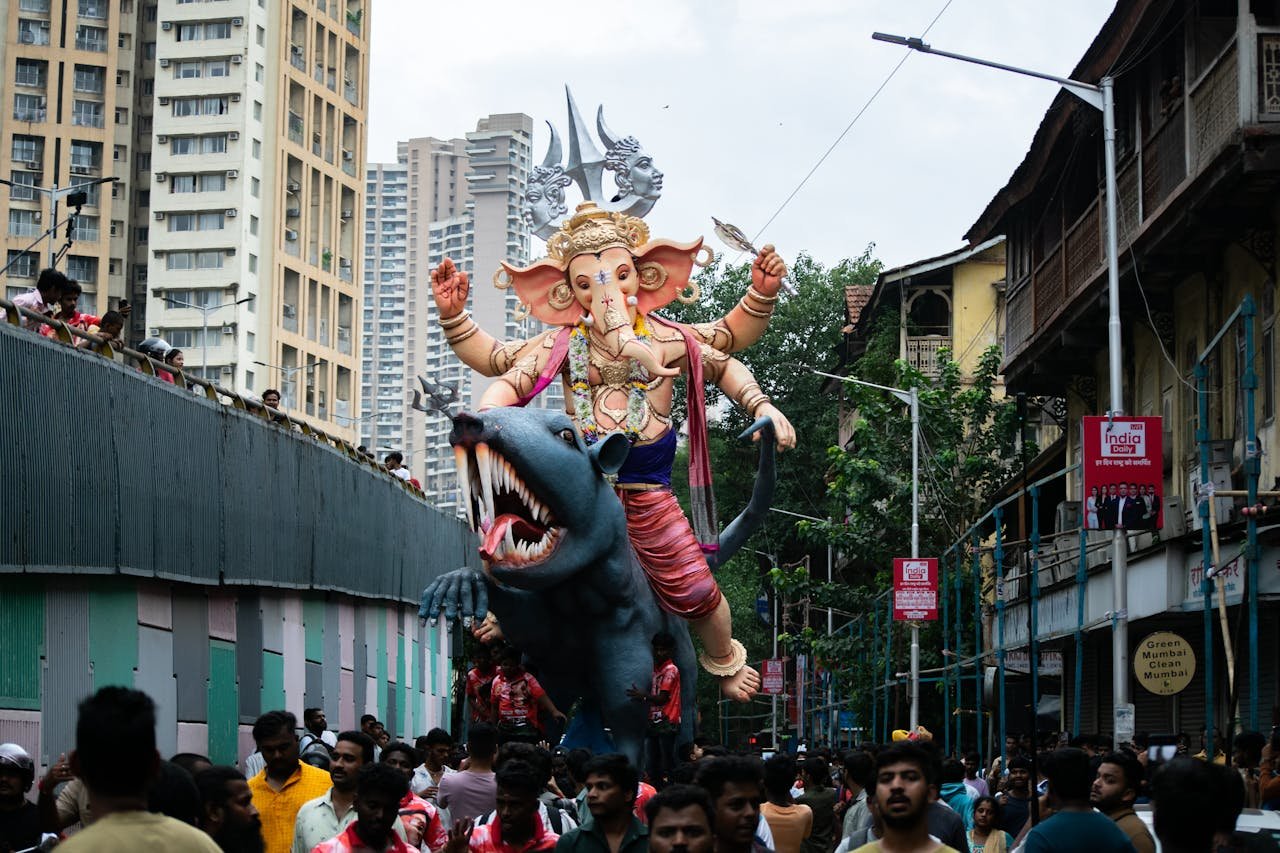Spiritual concepts in both Christianity and Hinduism

Table of contents
Christianity and Hinduism, two of the world’s most prominent and enduring religions, possess distinct beliefs, practices, and worldviews. However, despite their differences, they share intriguing spiritual concepts that resonate across their teachings. Exploring these commonalities provides a deeper understanding of the universal human quest for meaning, purpose, and connection to the divine.
One notable shared concept is the idea of the soul. Both religions recognize the soul as eternal and central to individual identity. In Christianity, the soul is created by God, destined for eternal life either in heaven or hell, while Hinduism views the soul (or *Atman*) as part of the cycle of reincarnation, striving for liberation (*moksha*) and unity with the ultimate reality (*Brahman*).
Another parallel is the importance of devotion (*bhakti* in Hinduism and *agape* in Christianity), which emphasizes a personal relationship with the divine. Both traditions also emphasize the moral law and righteousness, embodied in Christianity’s Ten Commandments and the Hindu concept of *dharma*, which guides ethical living.
This article delves into these and other spiritual concepts found in both religions, offering a comparative lens through which to appreciate the diverse yet interconnected nature of humanity’s spiritual traditions.
| Concept | Christianity | Hinduism |
|---|---|---|
God (Brahman / Godhead) |
The one supreme being who is believed to have created the universe and everything within it. Christians believe in the Holy Trinity consisting of God the Father, God the Son (Jesus Christ), and God the Holy Spirit. | Brahman is the ultimate, unchanging reality or universal soul that is the source and essence of the universe. It is beyond description and comprehension, and manifests in various forms or deities such as Vishnu, Shiva, or Devi. |
Prayer (Bhakti) |
Communication with God through spoken or silent words, expressing praise, thanksgiving, repentance, or making petitions and requests. | Devotional practice involving worship, meditation, chanting, and ritual acts performed to cultivate love and devotion towards a chosen deity. |
Salvation (Moksha / Salvation) |
Deliverance from sin and its consequences, resulting in eternal life with God in heaven, achieved through faith in Jesus Christ and His sacrifice on the cross. | Liberation from the cycle of birth, death, and rebirth (samsara), attaining unity with Brahman through self-realization and spiritual knowledge (jnana), devotion (bhakti), or righteous action (karma). |
Karma |
The concept of moral cause and effect, where one’s actions determine their future consequences, often associated with the biblical principle “you reap what you sow”. | The law of cause and effect governing one’s actions and their consequences in this life or subsequent lives, shaping one’s destiny and influencing future rebirths. |
Suffering (Dukkha / Dukha) |
The experience of pain, sorrow, or distress caused by sin, separation from God, or the brokenness of the world. | The inherent dissatisfaction and impermanence of worldly existence, causing emotional and physical suffering, which can be transcended through spiritual realization and detachment. |
Grace (Anugraha / Grace) |
The unmerited favor and divine assistance given by God to humans for their salvation or spiritual growth. | The divine blessing or favor bestowed upon devotees by a deity or guru, often seen as the result of sincere devotion and spiritual practice. |
Love (Prema / Agape) |
Unconditional, selfless love demonstrated by God towards humanity and encouraged as the highest virtue for believers to express towards God and others. | Divine or spiritual love expressed through devotion to a deity or guru, aiming for union with the divine and compassion towards all beings. |
Sacrifice (Yajna / Sacrifice) |
The offering of oneself or something of value as an act of worship or devotion to God, reflecting the sacrificial love and life of Jesus Christ. | Ritualistic offering or act performed to propitiate deities, seek blessings, and maintain cosmic order, often involving offerings into the sacred fire (agni) as a form of worship. |
Sin (Papa / Sin) |
An immoral act considered to be a transgression against law and scriptures, resulting in estrangement from God and the need for redemption. | Actions or thoughts that create negative karma, leading to spiritual imbalance, suffering, and bondage in the cycle of birth and death. |
Faith (Shraddha / Faith) |
Trust and confidence in God’s promises, teachings, and existence, often considered essential for salvation and spiritual growth. | Firm belief, trust, or confidence in the divine, scriptures, teachings of gurus, or the efficacy of spiritual practices, crucial for progress on the spiritual path. |
Pride (Ahamkara / Ego) |
The sense of self-importance, pride, and attachment to worldly identity that separates individuals from God and others, often considered a barrier to spiritual growth. | The illusion of individuality and separateness, leading to attachment, desire, and suffering, which needs to be transcended through self-realization and surrender to the divine. |
Renunciation (Sannyasa / Renunciation) |
The voluntary relinquishment of worldly attachments, desires, and comforts in pursuit of spiritual growth, exemplified by monks, nuns, or ascetics in Christian traditions. | The stage of life or path of spiritual discipline involving detachment from material possessions, desires, and ego, aiming for liberation (moksha) from the cycle of birth and death. |
Heaven (Svarga / Heaven) |
The eternal abode of God, angels, and righteous souls after death, characterized by divine presence, joy, and peace. | A celestial realm of bliss and happiness, attained by virtuous actions and devotion, where souls experience the rewards of good karma before reincarnation. |
Hell (Naraka / Hell) |
The realm of punishment and suffering after death for those who reject God, characterized by separation from God and eternal torment. | Various realms or states of suffering experienced by souls as a consequence of negative karma, where they undergo purification before potential rebirth. |
Meditation (Dhyana / Meditation) |
Contemplative practice involving quieting the mind, focusing on God, reading scriptures, or spiritual truths to deepen one’s relationship with God and attain spiritual insights. | Spiritual practice involving concentration, mindfulness, and introspection to cultivate inner peace, self-awareness, and union with the divine, often practiced through techniques such as breath control, mantra repetition, or visualization. |
Divine Presence (Sakshatkar / Divine Presence) |
The direct experience or realization of God’s presence, love, and guidance in one’s life, often through prayer, worship, or spiritual experiences. | The direct perception, communion, or union with the divine presence within oneself or in the external world, experienced through devotion, meditation, or spiritual practices. |
Enlightenment (Bodhi / Enlightenment) |
Spiritual awakening or illumination leading to profound understanding of God, self, and reality, often associated with spiritual maturity, wisdom, and transformation. | The state of transcendent wisdom, liberation, or self-realization (moksha) attained by realizing one’s true nature as divine or by merging with the ultimate reality (Brahman), ending the cycle of birth and death. |
Dharma |
The moral and ethical duties or responsibilities prescribed by God, scriptures, or religious teachings, guiding individuals towards righteousness and spiritual growth. | The natural order, law, or duty governing the universe and individual conduct, encompassing moral, social, and cosmic obligations, essential for harmonious existence and spiritual evolution |
This article and its contents should be taken more for passing interest rather than in-depth study. As should be obvious to a religious study scholar, each of these spiritual concepts are to be considered and studied in its own context and religion rather comparatively to understand it better. A more detailed study of some of these spiritual concepts can be expected some time in the future.





